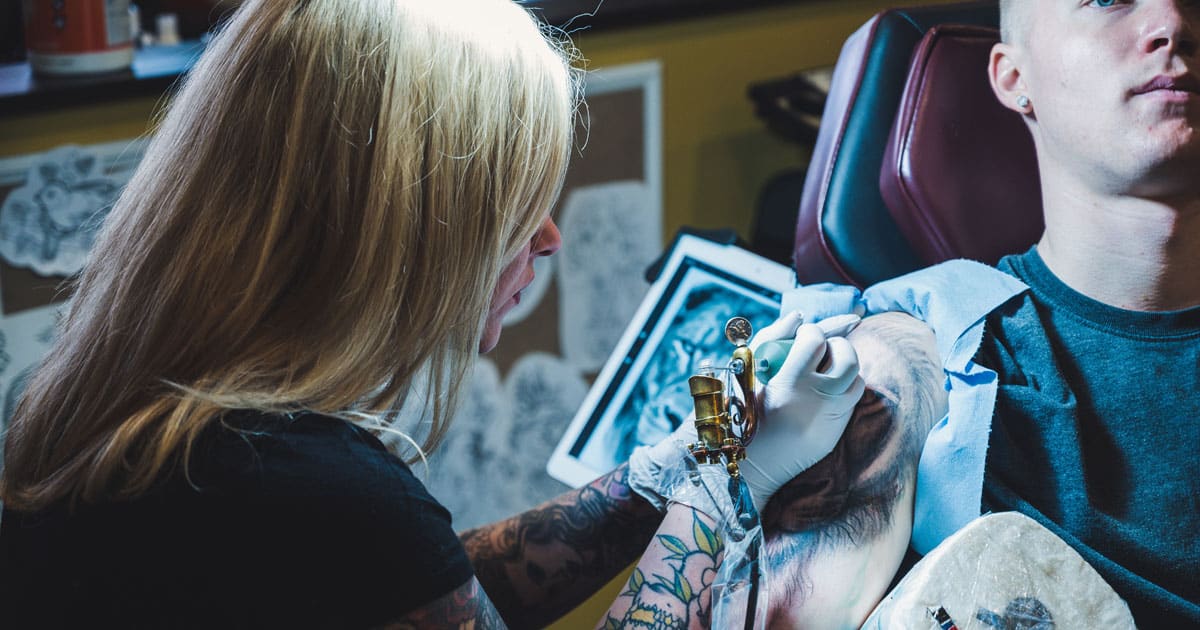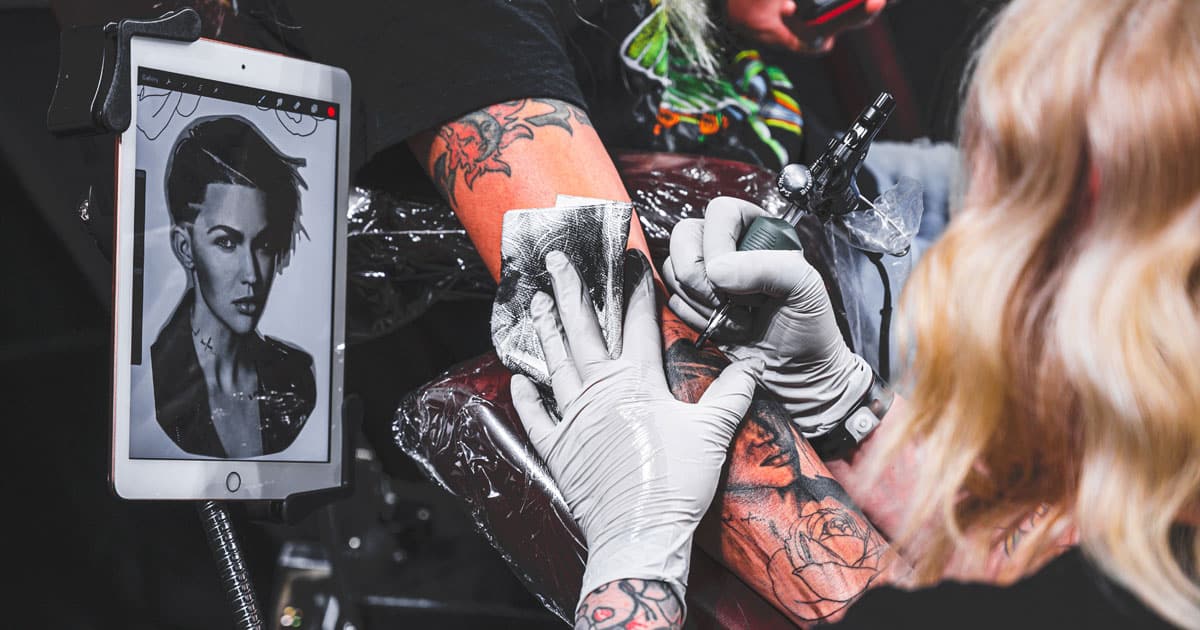For someone who loves the idea of tattoos, those markings on their skin mean a lot more than you can ever tell or see. If you’ve ever gotten a tattoo, you sure have a reason for getting one.
Maybe you got one to keep a loved one close, to show your zodiac sign, or for other reasons only you can tell. Whatever your reason may be, you are a daring soul for choosing to go ahead with your choice.

It’s a beautiful thing to see people get tattoos for different reasons. Some designs turn out quite adorable. These tattoos may look nice, but getting a real tattoo may not be something you should try.
Tattoos cause harm, especially if they are not done well. This harm includes severe damage to your overall health sooner or later. People are aware of some of these dangers, but some still insist on getting them for reasons which may sound genuine.
Why do people get tattoos? Why should you avoid getting tattoos? What other thing is there to know about tattooing?
Keep reading to find out.
Why Do People Get Tattoos?
Many years ago, society frowned at someone who had a few tattoos, but now, they are quite common and even celebrated. Since people like to associate with cool beliefs, there is no need to ask why most people have a tattoo.
A study taken recently gave answers to why people get tattoos. Of course, the answers given were different, but they revolved around common reasons. Some people get tattoos to give themselves the feeling of closeness to someone they love. Others get tattoos to remember events they hold dear. People got tattoos for protection, while others got tattoos for healing.
Some people get tattoos to identify with certain groups, lineages, or places. Yet, most people confess they got them because tattoos look cool. Whatever the reasons may be, getting them can still be dangerous. Getting tattoos is not worth the stress sometimes.
What Are the Side Effects of Getting Tattoos?
Health practitioners have always kicked against tattooing since it became a common trend. Due to the health risks associated with tattoos, their claims are logical. Tattoo side effects may vary from person to person, making it hard to know which one to pay attention to.
Functional medicine is a model of medicine that individualizes the treatment of diseases and infections. They use specific therapeutic approaches for each individual. The practitioners of these models are the most concerned health practitioners about the dangers of tattooing, as the side effects are specific for each individual.
In the context of tattooing, functional health practitioners believe that the complications that arise can get worse. Though the possibilities of getting infections from tattoos are rare, you can’t cancel the truth about them.
Before you become the owner of a tattoo, you should be aware of the dangers they use in the process. Tattooing requires the pricks of needles into the skin, so the ink used for coloring stays in the skin. The process is quick and simple, but it is not free from pain. However, the pain you feel for the time after getting a tattoo is the least of your worries compared to other dangers.
Allergies, skin diseases, and wounds are common side effects of having tattoos. Hives, rashes, and itchy skin are also noticed, but they are not the worst that people experience. Some side effects you may not be aware of include:
You Can Get Cancer
The ink contains toxic substances and heavy metals which are harmful to health. These substances are also carcinogenic. Common carcinogens include arsenic, nickel, titanium, cobalt, mercury, iron oxide, etc. They are also responsible for immediate allergic reactions. In addition, as some of the ink deposits in the closest tissues and lymph nodes, you are liable to get cancer in the affected tissues.
Lead, one of the most violent triggers of gene mutation, is an active ingredient of some tattoo ink. These substances remain in your body and cause more damage, even if you’ve long taken off the tattoos.
Some tattoo givers add their formulations to the ink for a better color effect. Unfortunately, the substances they add are peculiar to them, so it can get difficult to tell the extent of damage from these substances.
It Affects Your Body Function
Tattoos affect the normal functioning of your body, especially the skin, as long as it is there. One of the most affected body processes is sweating. Since they put the ink beneath the skin, it disturbs the production and removal of sweat. That makes ‘tattooed’ skin produce less sweat than normal.
Sweating is a process that helps humans cool their temperature. When substances get in the way of sweat glands, mild hyperthermia may set in.
People with tattoos also experience burning sensations when they undergo MRI tests. Tattoos also distort the quality of these tests when carried out.
You Are Susceptible to Different Infections
When tattoo needles are not sterilized well, you are prone to worse infections and diseases. This is because these diseases get transmitted through unsterilized needles. Diseases that affect the immune system and vital organs should be your main fear.
For instance, liver diseases like Hepatitis C can be easily transferred through an unsterilized needle. You don’t need to be a student of advanced functional medicine to know that Hepatitis C is a bad thing. When you expose yourself to the tattoo needle, you expose yourself to transmittable diseases.
Aside from these diseases, you are also prone to septicemia. Septicemia means pathogenic bacteria in the blood, which can deteriorate into septic shock. This may not come through infected or unsterilized needles alone. Pathogenic bacteria and toxins find their way in through adulterated or opened ink. There’s no need to predispose yourself to harm when all you want is a tattoo.
Bonus Tip 1: Know Your Tattoo Giver
If you insist on the tattoo, you must know the tattoo giver. Understanding them means you are aware of the procedures they use. It would be best if you also understood how they sterilize or dispose of used needles.

Also, be aware of the type of ink used for tattooing and the components. There is a possibility that you may be allergic to some of these substances. In addition, some tattoo givers have a reputation for adding poisonous stuff to the ink for better effects. Your safety should be a priority.
Bonus Tip 2: Get the Opinion of Functional Medicine Practitioners
The question on your mind might be, “what is a functional medicine doctor or practitioner?” They are experts in medical business management. They check up on your physical, emotional, and mental health. Keeping records of your diet, genes, prescriptions, and medications, functional medicine practitioners are in the best place to provide advice in certain situations.
Try to hit them up when you’re considering a tattoo. Functional medicine doctors will advise if it’s a safe step for you or not.
Conclusion
Tattoos may be more common than ever, but that doesn’t make them harmless. Know the risks involved before you have that permanent mark on your body. It is better you take precautions rather than deal with the side effects. Some of these side effects linger after removing the tattoo. Coping with side effects you didn’t expect can also cost you a fortune.
It would help if you spoke with a functional health practitioner before you got one. You can’t be too cautious about the things that concern your life and well-being.
